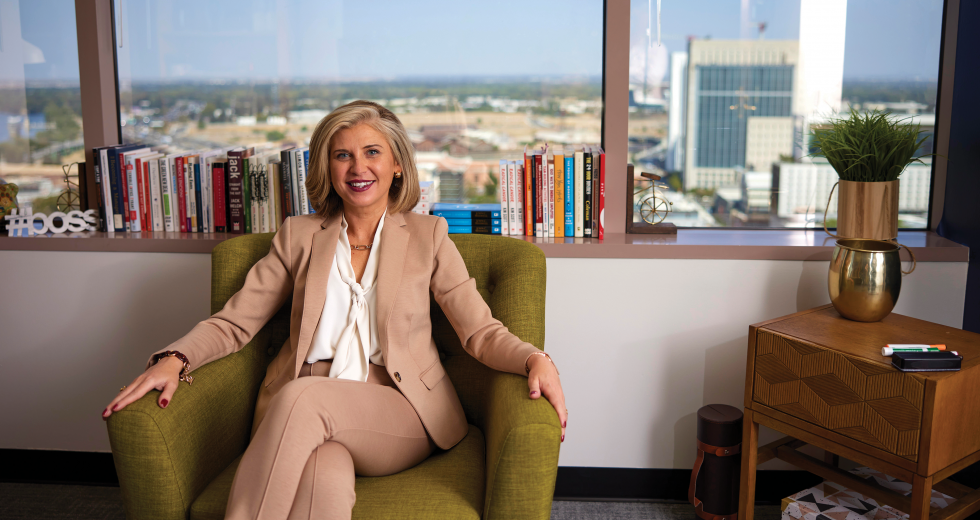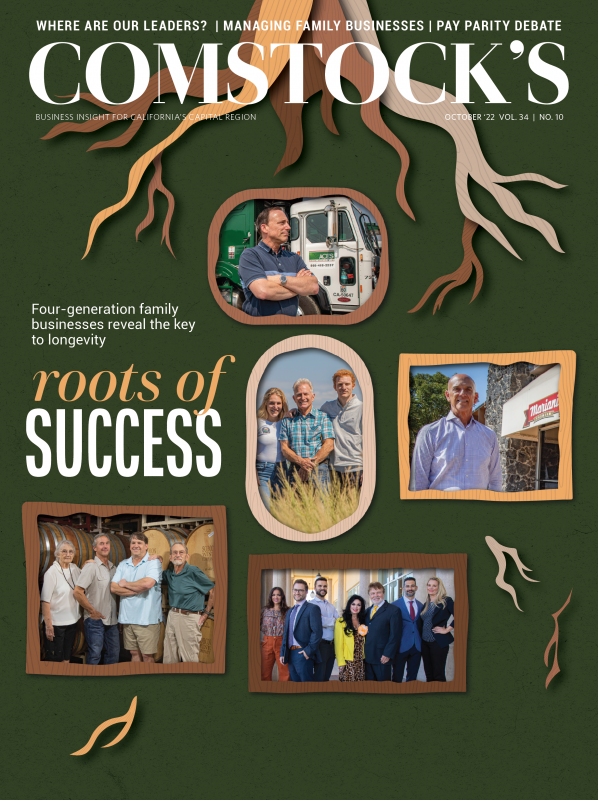Where have all our leaders gone? Across the political spectrum, this is perhaps the only thing that everyone can agree on: The nation lacks inspiring leaders. Where are the Winston Churchills, the John F. Kennedys, the Margaret Thatchers?
We’re faced with a “crisis of leadership,” says Bonnie Ferreira, CEO of the Sacramento-based American Leadership Forum. She attributes this to a challenging climate of polarization and asks, “How do we overcome this institutional mistrust, this divisiveness? How do we push against hate?”
One answer is to look closer to home. While leadership appears to be lacking on the national stage, quietly — away from the spotlight — local leaders can inspire. “I do think there are leaders who are really trying to be sincere and authentic, and have a people-first mindset,” says Jeff Dern, CEO of PRIDE industries. “But maybe they’re just not getting noticed as much.”
The topic of what makes a good leader gobbles up an entire aisle of the bookstore. It’s beyond the scope of one article. But Dern says that while there are a million books on CEO leaderships, for him, it’s more helpful to “find the best qualities of many different leaders that I can draw from,” as opposed to “a monolithic, single person who encapsulates everything.”
So perhaps we can’t identify a Churchill who’s beloved by all, but we can find local leaders who illuminate worthy principles.
It starts with authenticity
Abraham Lincoln never had to deal with Twitter. Queen Victoria was not at risk of getting canceled. But thanks to social media, modern leaders must navigate a minefield that can explode at any moment.
“Social media is brutal,” says Amanda Blackwood, the president and CEO of the Sacramento Metropolitan Chamber of Commerce. The first female CEO in the chamber’s history, Blackwood says that after she gave a press conference in December (concerning whether the city should be allowed to tow vehicles used as shelters by the homeless), she received death threats.
“It’s crazy,” she says. “When you are a public person, the social media side is so horrifying for you, for your family, for your kids.”
But this comes with the territory. A leader’s job, says Blackwood, is to have the uncomfortable conversations. Homelessness is a “huge challenge! Uncomfortable challenge. Bringing it up is going to be bad,” she says. “Racism. Gender bias. Of course it’s uncomfortable, and that’s why we avoid it, and we don’t deal with it.”
Blackwood learned this lesson on April 20, 1999, when she was a high school sophomore in rural Kansas. Twelve students had just been shot and killed in Columbine, Colorado. The nation was stunned. Teachers encouraged the students not to speak about the shooting.
“But this was the most important thing we should be talking about,” Blackwood says. So she created a student-led program called Ottawa Young Leaders and wrote an op-ed in the local paper. “That was a really pivotal moment for me,” says Blackwood, who realized that “leaders have to create space for difficult conversation.”
There is one catch. Blackwood says that if a leader feels strongly about a charged or sensitive issue — such as George Floyd’s murder — then they should speak up. But authenticity comes first. “If you don’t care, don’t be fake,” she says. “Don’t say things you don’t mean. Don’t say you care about women’s equality if you don’t, and put it on an Instagram post and say ‘Rah rah, I did my part.’ I don’t need that.”
Authenticity comes in different forms. For Phil Oates, who took the reins of Buzz Oates real estate after his father passed away in 2013, authenticity meant stepping out of his legendary father’s shadow. Buzz, who Phil describes as “the alpha dog in the room,” had a certain way of doing things.
Buzz loved to create investment deals and partnerships. When Phil spoke at his father’s funeral, he asked everyone who was a partner of Buzz’s to raise their hands — over 100 hands shot in the air. “His way of telling you he loved you was the distribution of profits,” says Phil. “That was his love language. He would help finance homes for people that were his friends.”
Phil Oates, chairman of Buzz Oates real estate, changed the
direction of his father’s company after the popular developer
passed away.
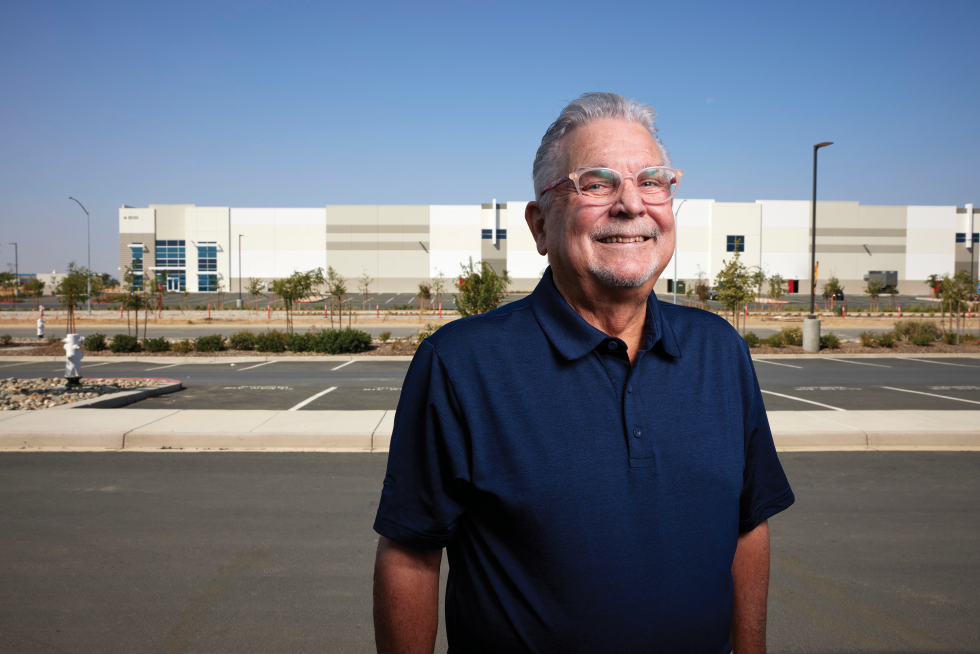
After Buzz passed, people assumed that his son would run things the same way. Phil had other ideas. With a core team of CEO Larry Allbaugh and Chief Investment Officer Kevin Ramos, Phil Oates consolidated the many partnerships into one entity, shuttered the landscape companies, and streamlined the firm to focus on warehouses. Many considered this blasphemous. Friend after disappointed friend told him, “Buzz was a great man, and that’s not the way Buzz did it.”
Phil Oates had a simple reply: “Yes and yes.” Yes, his father was a great man, and yes, his father would never do this, but Phil had to be true to himself, not copycat his father. These were not easy conversations. A leader’s job, as Phil sees it, is to make tough decisions. “If everybody agreed on a thing, that’s not a decision. A decision is something that’s going to alienate a portion of your friends, your people, your partners.” Phil says that since making that decision in 2013, the value of Buzz Oates has tripled.
Oates’ most important tenets of leadership? Excellence, humility and service. A man of faith, Phil Oates views the lessons of the Bible as still relevant in the era of TikTok. “I feel like the greatest leader in our history was Jesus Christ,” says Oates. “He served people, he listened to people, he loved people.”
Service is the crux
The concept of service is a recurring theme from local leaders. “Service is the crux of everything,” says Ferreira. “We have to be in service to one another, and we have to be in service to the greater community.”
This is certainly true of public servants. “Leadership doesn’t start with somebody saying, ‘I’m going to be a leader,’” says Congresswoman Doris Matsui, who is widely respected for stepping into office in an especially challenging time; only months after her husband, Congressman Bob Matsui, died in 2005. She ran for office to fill his seat. Leadership begins not by thinking about yourself, says Matsui, but from a deep and authentic desire to help others, as “you’re in there for service for other people.”
For Blackwood, one way to serve the community is to open doors for others. “I strongly believe that if you’re in a position of power and influence, and you can open the door to those who have been historically left behind, you absolutely have a moral responsibility to do that,” she says, adding that she has often needed that in her own career.
“I often needed a man, who’s already in a position of leadership, to vouch for me,” says Blackwood. “At this point, what more do I need to do to prove that I deserve to be in the room? But it’s because I’m a woman, and I’m young, and it is what it is. So I need a sponsor to get me access.” Blackwood is paying it forward; as a white woman in a leadership position, she now uses her privilege to help Black women gain access to capital.
“Managing is just giving instructions and telling people what to do. Leading is encouraging them to bring out their very best self.”
Jeff Dern CEO, PRIDE Industries
For much of Blackwood’s career, she was doubted and dismissed. As a kid she says she was told she was bad at math because she was a girl. But she kept hustling — washing dishes for $4 an hour at a Chinese restaurant, launching her own babysitting business, and starting a company that digitized business cards with a hand-held scanner. Bonus hustle? In the fine print of Blackwood’s contract, she granted herself permission to keep a copy of the contact data for herself. Some might consider this a shocking breach of privacy, but it dramatically expanded her Rolodex.
Then came the doubters in the construction industry. In her 20s, in the wake of the housing market collapse in 2007, Blackwood worked at Folsom Asset Management to flip over 1,200 houses (buying distressed properties and renovating them) across a sprawling area that included Sacramento, Fresno and Phoenix. She worked with two other young women — none had college degrees at the time. “We were working in a man’s world,” says Blackwood, laughing. “These guys are in their 40s. They’re construction guys. They’re real estate guys. They don’t want to take any direction from us.”
That would soon change. Every morning at 7:45 a.m, Blackwood’s team gained access to a list of foreclosed homes that would be sold at the courthouse. Then the auction would start at 8:15 a.m. How much should they bid? The list only had an address on a piece of paper — no photos, no data, no Redfin commentary. How do you evaluate the potential ROI on 70 properties in 30 minutes? So Blackwood worked with a local tech company to create an algorithm that automatically assessed the properties’ values. As Blackwood says now, “It was a huge game changer.”
Blackwood worked to overcome mistrust from her peers, and Ferreira cites this as a key goal for modern leaders. “How do you navigate that mistrust?” asks Ferreira. Since its inception in 1980, the ALF brings together a diverse group of leaders from the Capital Region — each year a class of 20 to 30 — and coaches them on how to trust each other and build deeper relationships. The real trick, according to Ferreira, is having the vulnerability and confidence to expose yourself to people with backgrounds, ideas and opinions that are different from your own. She says a good leader who has built these relationships might say, “I don’t agree with what you said, but I believe in you. I’ll stand in the fire with you.”
Building relationships with integrity
These personal relationships are in short supply. When Rep. Matsui’s husband was first elected to Congress in 1979, she moved to D.C. along with most of the congressional families. They socialized and had dinners and their kids played soccer together. “Whether you’re a Republican or Democrat, you got to know each other,” says Matsui.
All of that has changed. Matsui says that most representatives no longer bring their families to D.C., which has robbed the culture of its “humanizing” social gatherings. This is part of the national problem, and this is something she tries to overcome by cultivating her own personal relationships. “You can’t just start with a transactional viewpoint,” says Matsui. “You have to build relationships, whether it’s in an elevator or talking about sports or talking about kids.”
This is as true of companies as it is in Congress. At PRIDE industries, which works to secure employment for people with disabilities, Dern tries to nurture relationships by constantly walking around and chatting with employees, a habit he learned from longtime CEO Michael Ziegler, who passed away in 2020. “When I walk around and say hello to people, I get to experience their positive energy, and hear about what they’re doing, and how they’re doing,” says Dern. “That really lights my fire.”
Dern has found that only by spending time with people — truly learning what motivates them — can you connect with your team. “Managing is just giving instructions and telling people what to do,” says Dern. “Leading is encouraging them to bring out their very best self.”
Another leadership trait that Dern learned from Ziegler: optimism. “He never saw problems, only opportunities,” says Dern. “He would say to executives, ‘You get to guide the companies through tough times.’ We’re never a victim of our circumstances.”
Optimism can feel scarce. “One of the things that’s really lacking right now is somebody who has the ability to see the future, and to articulate a hopeful vision,” says Mark Friedman, founder and chairman of Fulcrum Property, and also a mentor to many leaders in Sacramento (including Blackwood).
We’ll give the final — and perhaps most important — leadership principle to Friedman, who learned it from his father, the late developer Mort Friedman: integrity.
When Mark Friedman was a kid, he was taught to say the phrase Friedman’s Honor. “If you said Friedman’s Honor, it was the equivalent of saying, ‘Cross my heart and hope to die,’” says Friedman, adding that even his childhood friends would say Friedman’s Honor. “When you make a promise, you keep it. Your reputation is everything.” He pauses, and thinks. “That’s particularly pertinent right now, because we live in a very different era, where there are few people who live by that credo.”
But there are a few. A few with integrity, a few that inspire, a few that feel human, and a few that show that perhaps not all the leaders have gone.
Editor’s note: Martha Lofgren served as interim CEO of the Sacramento Metro Chamber for seven months in 2011.
–
Stay up to date on business in the Capital Region: Subscribe to the Comstock’s newsletter today.
Recommended For You
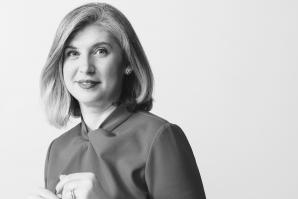
Sacramento Metro Chamber CEO Amanda Blackwood on the Organization’s Future
Sacramento Metropolitan Chamber CEO Amanda Blackwood on new strategies for the longstanding organization.
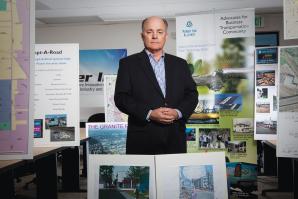
Industrious Revolution
Sacramento's engine room transforms into a center for innovation
Transforming the Power Inn area bears a striking resemblance to the way an ancient lake transforms into a meadow. It takes a lot of infill, it happens over decades and the result can be a jewel that brings new vitality to the landscape.

Starting From Scraps
Developers look to convert the region’s rotting eyesores into unique visions for business
While repurposing old warehouses for new use comes with
technical and financial challenges, it also presents great
benefits, and is one way to build green and sustainable.
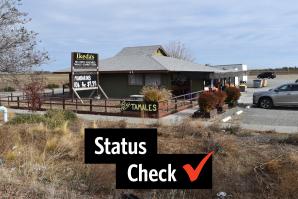
Status Check: Innovation on Hold
Proponents for Davis Innovation and Sustainability Campus press on despite election defeat
Davis voters narrowly rejected Measure B this past November, declining to change land-use designations to pave the way for the Davis Innovation and Sustainability Campus.



